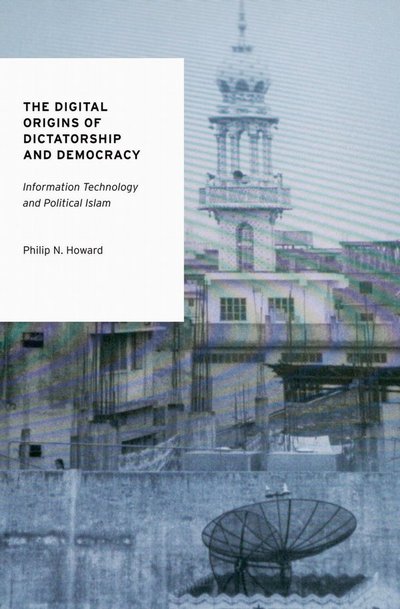August 23, 2010
Prospects for democracy in Iraq? Research shows Internet indispensable
As the last combat troops withdraw from Iraq, the country’s citizens are left to sort out their future. Research from the University of Washington finds that digital media, such as mobile phones and the Internet, have become all but essential in building democracies.
“The Internet has played a key role in nearly all democratic transitions in the last 15 years,” said Phillip N. Howard, a UW associate professor of communication. His new book, “The Digital Origins of Dictatorship and Democracy,” will be released by Oxford University Press on Aug. 25.
Howard and his team, the Project on Information Technology and Political Islam (www.pitpi.org), analyzed ways new information technologies contribute to democratic entrenchment or transition in countries with large Muslim populations.
“Countries with high rates of technology diffusion are most likely to develop strong democratic institutions,” Howard explained. “The recipe for democratization 50 years ago had other ingredients such as radio, television and newspapers. Today, the recipe must include the Internet.”
Globally, one in 10 Internet users is a Muslim living in a populous Muslim community. Often young and digitally savvy, these users spread information independently of governments and beyond manipulation by cultural and religious elites. Day-to-day civic discourse, not cyberterrorism, is the most important political aspect of the Internet in Muslim countries, the researchers found. They also found that the Internet is helping societies get better at running elections, providing civic services and exposing corruption.
Researching their topic, Howard and his team determined that “The Digital Origins of Dictatorship and Democracy” would be the first book to move beyond potential and hypothetical relationships between the spread of communication technology, such as mobile phones and the Internet, and empirical evidence about democratic outcomes.
The researchers studied information and communication technology in 75 countries, finding that technology that is modernizing society and driving economic growth is also enabling growing numbers of journalists, non-governmental organizations and ordinary citizens to find and publicize information unsanctioned by dictators or the ruling elite.
“Dictators around the world bet they could get the economic benefits of a modern, Internet-enabled economy without the risks. They’re losing the bet,” Howard said.
By building Internet ties both inside and outside their countries, the researchers found, these people are creating sturdy avenues for change.
Put another way, it’s not just Islamic extremists who are using the Internet; ordinary citizens and the political parties they support are using digital technologies to trounce extremist Islamist parties on election day. Indeed, Howard learned, political parties that don’t use new technology get left behind: their candidates lose elections.
Howard and his team learned that on average, Muslim societies are becoming wired faster than the rest of the developing world. For example:
• Counts for mobile phones, Internet users and Internet service providers per Muslim household over the last 10 years have very steep slopes.
• There is a mobile phone user in almost every Muslim household, and many households have several users.
• There is a radio or television in 80 percent of Muslim households.
• At least one person in 60 percent of Muslim households has used the Internet.
A wired society, the researchers found, is the common denominator in developing democracies, but cell phones and the Internet haven’t, on their own, led to democracies. Rather, they have opened and broadened civil conversation.
“New information technologies do not topple dictators; they are used to catch dictators off guard,” Howard said. In young democracies such as Turkey, Indonesia and Malaysia, the rapid spread of mobile phones and Internet connections has allowed citizens to challenge their governments.
“The central government won’t bring democracy to Iraq,” Howard said, “but the Internet just might. It doesn’t have to reach everyone in Iraq, either. If opinion leaders and cultural elites are online, they can lead a very vibrant public sphere.”
Howard’s findings are the result of a three-year study funded by the National Science Foundation.
###
For more information, contact Howard at 206-612-9911or pnhoward@uw.edu.
For a review copy of the book, contact kimberly.meskimen@oup.com or publicity@oup.com at Oxford University Press.

